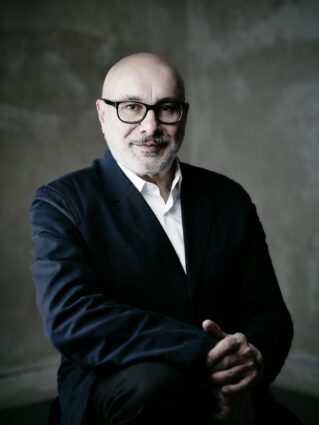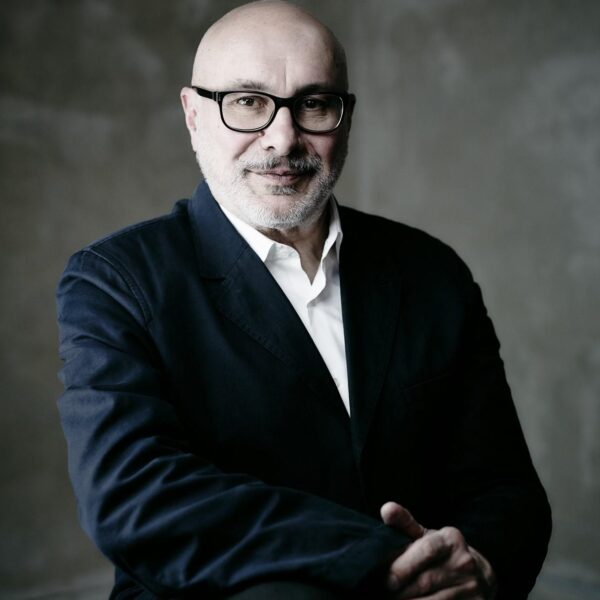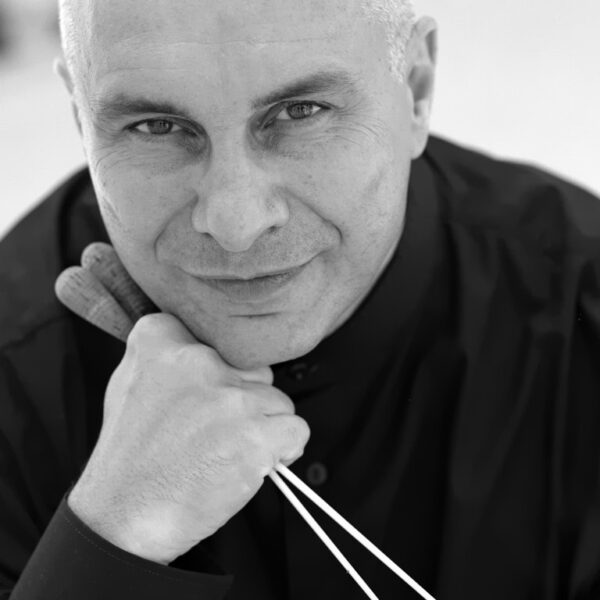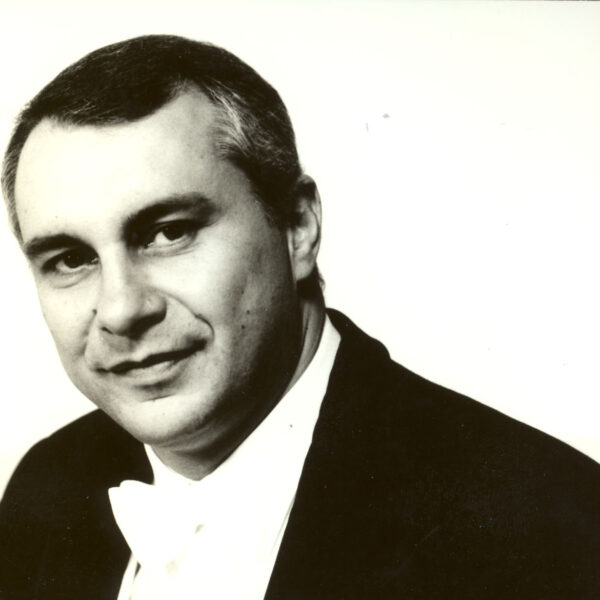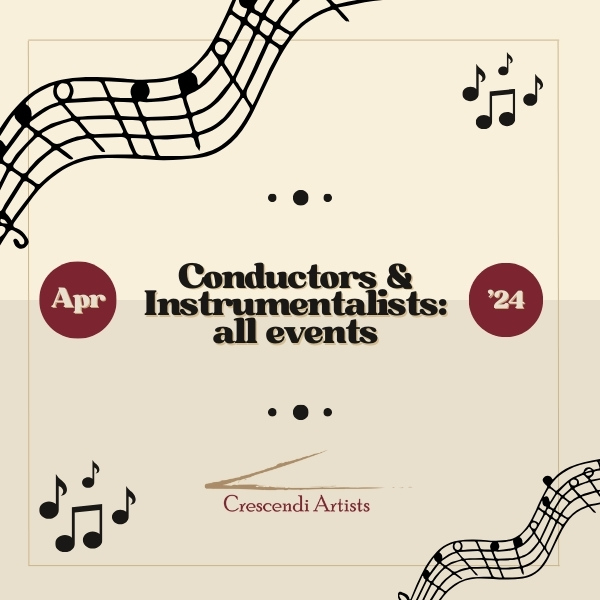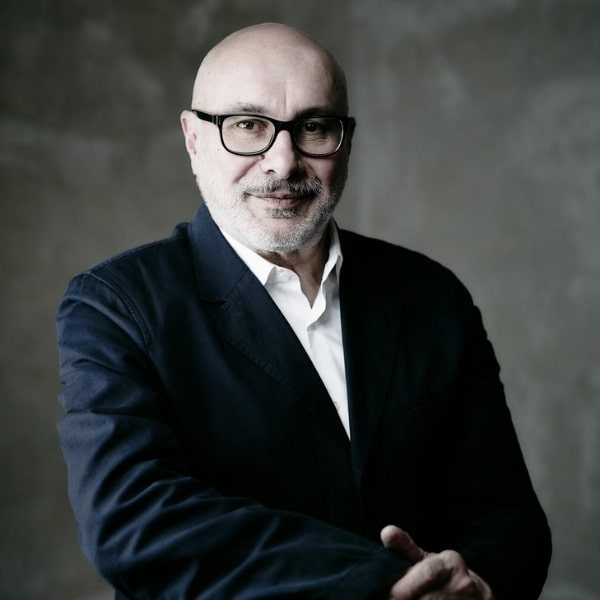INTRODUCTION
Giuliano Carella is an internationally acclaimed conductor with a wide repertoire ranging from Giovanni Paisiello all the way up to the modern Ferrero, including all the most important works in the Italian operatic repertoire and several works in the French repertoire.
In 2019 he was appointed Music Director of I Solisti Veneti, and since 2020 he has been I Solisti Veneti‘s Artistic Director.
RECENT AND FUTURE ENGAGEMENTS
Giuliano Carella’s most recent and future engagements include (among others):
- concerts with I Solisti Veneti and at Rossini Opera Festival;
- Don Pasquale at Tiroler Festspiele Erl;
- Tosca at Opéra de Marseille and Staatsoper Stuttgart;
- La bohème at Opéra de Nice;
- Macbeth at Aalto Theater Essen;
- La Betulia liberata, K.118/74c by W.A. Mozart with I Solisti Veneti in Padova;
- Madama Butterfly at Opéra National du Rhin;
- Bianca e Falliero at Tiroler Festspiele Erl and Oper Frankfurt;
- Carmen at Théâtre du Capitole de Toulouse;
- Rigoletto at Staatsoper Stuttgart and at New Israeli Opera Tel Aviv;
- ‘A Venetian Evening’ concert with I Solisti Veneti in Oman.
BIOGRAPHY
Giuliano Carella has conducted repeatedly at the Bayerische Staatsoper in Munich, Berliner Staatsoper, Hamburgische Staatsoper, Wiener Staatsoper, Opéra Comique in Paris, Opéra de Marseille, Opéra du Rhin in Strasbourg, Teatro de la Zarzuela and Teatro Real in Madrid, Liceu in Barcelona, Teatro Sao Carlos in Lisbon, Opéra de Montecarlo, Opera North in Leeds, New Israeli Opera in Tel Aviv, Teatro Colon in Buenos Aires, Michigan Opera Theatre in Detroit, New National Theatre in Tokyo, Opéra de Wallonie in Liège, Opéra de Toulon, as well as, a.o. Arena di Verona, Teatro Comunale in Bologna, Teatro Massimo in Palermo, Teatro Carlo Felice in Genova, Teatro Verdi in Trieste, Rossini Opera Festival in Pesaro, Martina Franca Festival, Puccini Festival in Torre del Lago and at Belcanto Festival in Dordrecht.
Next to Carella’s operatic repertoire, particularly important is his symphonic activity leading some of the most prestigious orchestras in some of the greatest concert halls such as Paris’ Salle Pleyel, London’s Queen Elizabeth Hall and Concertgebouw in Amsterdam.
Giuliano Carella’s engagements in recent years include (among others): I puritani at Opéra de Marseille, Tancredi and Giovanna d’Arco at Théâtre de la Monnaie de Bruxelles and at Opéra de Marseille; Rigoletto, Tosca, Don Pasquale, Ariodante, I Puritani at Staatstheater Stuttgart; Le Prophète by Meyerbeer in Essen; Roméo et Juliette at Opéra de Toulon and in Montreal; Francesca da Rimini in Strasbourg; La Bohème at Dallas Opera.
Among his notable engagements in the past few years are Stiffelio at Frankfurt Oper, Tosca in Toulon and in Essen, Il tabarro, Gianni Schicchi and Suor Angelica at Royal Danish Opera, Carmen at Semperoper Dresden, Semiramide in Marseille, Gianni Schicchi with Placido Domingo as Schicchi at Teatro Real di Madrid, Madama Butterfly and La Traviata in Stuttgart, Il Trovatore, Simon Boccanegra, Lakmé in Toulon, Il barbiere di Siviglia at Dallas Opera.
Other engagements include La Traviata at Amsterdam National Opera; Il Trovatore at Arena di Verona; Nabucco and Madama Butterfly in Stuttgart; L’Italiana in Algeri in Marseille; Vêpres Siciliennes at Frankfurt Oper; Il Barbiere di Siviglia in Dallas, Norma, Carmen, Madama Butterfly, I Pagliacci/Cavalleria Rusticana, Don Giovanni and Lakmé at Opéra de Toulon, Gala Concert with Joseph Calleja in Helsinki, Lucrezia Borgia in Montecarlo, Madama Butterfly in Parma, La finta semplice at La Fenice in Venice, Un Giorno di Regno in Nancy, Turandot and Norma in Barcelona (both recorded on dvd by TDK), Adelaide di Borgogna at the Edinburgh International Festival and Donizetti’s Il Diluvio universale at the Theatre Royal Drury Lane in London for Opera Rara, Roméo et Juliette, La Wally, Andrea Chenier, Macbeth and Poliuto at the Amsterdam Concertgebouw, Norma at the Berliner Staatsoper, Lucia di Lammermoor in Strasbourg, Cenerentola at the Grand Théâtre de Geneve, Cyrano de Bergerac with Roberto Alagna in Montecarlo, La Traviata at the Michigan Opera Theatre in Detroit and at the Japan Opera Foundation, Tosca at the Arena di Verona.
Carella has recorded several complete operas, several of them critically acclaimed like the autograph version of Sonnambula (Premio Musica e dischi) and Ernani’s critical edition (Diapason prize) recorded for Nuova Era, Pacini’s L’ultimo giorno di Pompei (Le Timbre de Platine) for Dynamic, as well as a number of recitals for Teldec and Erato leading the English Chamber Orchestra with Sumi Jo and Jennifer Larmore (Grammy Award Nomination 1999). For Opera Rara he has recorded Rossini’s Elisabetta regina d’Inghilterra with Jennifer Larmore, Donizetti’s Il diluvio universale, an highlights cd of Meyerbeer’s L’esule di Granata with the London Philharmonic Orchestra as well as Rossini’s Adelaide di Borgogna, live from the Edinburgh Festival.
EDUCATION
Giuliano Carella got his degree in conducting at the “Giuseppe Verdi” Conservatory in Milan, in composition at the “Cesare Pollini” Conservatory in Padova and he was awarded an honorary merit degree at the Accademia Chigiana di Siena, where he specialized under Franco Ferrara.
| OPERA
|
||
|---|---|---|
| Alfano, F. | Cyrano de Bergerac | |
| Bellini, V. | Bianca e Fernando | |
| I Capuleti e i Montecchi | ||
| I Puritani | ||
| Il Pirata | ||
| La Sonnambula | ||
| Norma | ||
| Bertoni, F. | Orfeo | |
| Bizet, G. | Carmen | |
| Les Pêcheurs de perles | ||
| Catalani, A. | La Wally | |
| Cimarosa, D. | Gli Turchi amanti | |
| Donizetti, G. | Anna Bolena | |
| Don Pasquale | ||
| Il Borgomastro di Saardam | ||
| Il Diluvio Universale | ||
| L’Elisir d’amore | ||
| La Favorite | ||
| Les Martyrs | ||
| Lucia di Lammermoor | ||
| Lucrezia Borgia | ||
| Poliuto | ||
| Ferrero, L. | Nascita di Orfeo | |
| Giordano, U. | Andrea Chenier | |
| Gluck, C.W. | Orfeo ed Euridice (1762 e 1776) | |
| Gounod, C. | Romeo et Juliette | |
| Leoncavallo,R. | I Pagliacci | |
| Mascagni, P. | Cavalleria Rusticana | |
| Zanetto | ||
| Massenet, J. | Thais | |
| Mercadante, S. | Caritea, regina di Spagna | |
| Il Giuramento | ||
| Meyerbeer, G. | L’Esule di Granata | |
| Montemezzi, I. | L’Amore dei tre re | |
| Mozart, W.A. | Cosi’ fan tutte | |
| Die Zauberflöte | ||
| Don Giovanni | ||
| La finta semplice | ||
| Le nozze di Figaro | ||
| Pacini, G. | L’ultimo giorno di Pompei | |
| Paisiello, G. | Il barbiere di Siviglia | |
| Il duello comico | ||
| Le due contesse | ||
| Proserpine | ||
| Puccini, G. | Gianni Schicchi | |
| Il Tabarro | ||
| La Bohème | ||
| La fanciulla del West | ||
| La Rondine | ||
| Madama Butterfly | ||
| Manon Lescaut | ||
| Suor Angelica | ||
| Tosca | ||
| Turandot | ||
| Purcell, H. | Dido and Aeneas | |
| Rossini, G. | Adelaide di Borgogna | |
| Demetrio e Polibio | ||
| Elisabetta, regina d’Inghilterra | ||
| Il barbiere di Siviglia | ||
| Il Turco in Italia | ||
| L’Italiana in Algeri | ||
| La Cenerentola | ||
| La gazza ladra | ||
| La morte di Didone | ||
| Le nozze di Teti, e di Peleo | ||
| Semiramide | ||
| Torvaldo e Dorliska | ||
| Rota, N. | La lezione di guida | |
| Saint-Saëns, C | La Princesse jaune | |
| Samson et Dalila | ||
| Spontini, G. | La Vestale | |
| Verdi, G. | Aida | |
| Attila | ||
| Don Carlos | ||
| Ernani | ||
| Falstaff | ||
| I Lombardi alla prima crociata | ||
| I Vespri siciliani | ||
| Il Trovatore | ||
| La Traviata | ||
| Luisa Miller | ||
| Macbeth (versioni 1847 e 1876) | ||
| Nabucco | ||
| Otello | ||
| Rigoletto | ||
| Simon Boccan | ||
| Un Ballo in maschera | ||
| Un giorno di regno | ||
| Wagner, R. | Der Fliegende Holländer | |
| Lohengrin | ||
| Zandonai, R. | Francesca da Rimini | |
| CONCERT
|
||
|---|---|---|
| Concerti per Oboe KV 314 | ||
| Götterdämmerung, Excerpts | ||
| Bach, J.S. | Cantata BWV 51, “Jauchzet Gott in allen Landen” | |
| Cantata BWV 82, “Ich habe genug” | ||
| Cantata BWV140, “Wachet auf,ruft uns di Stimme” | ||
| Concerti per 1 e 2 Violini, BWV 1041-1043 | ||
| Concerti per 1, 2, 4 Clavicembali, BWV 1052-1065 | ||
| Concerto Brandeburghese n.1, BWV 1046 | ||
| Concerto Brandeburghese n.2, BWV 1047 | ||
| Concerto Brandeburghese n.3, BWV 1048 | ||
| Concerto Brandeburghese n.4, BWV 1049 | ||
| Concerto Brandeburghese n.5, BWV 1050 | ||
| Concerto Brandeburghese n.6, BWV 1051 | ||
| Die Kunst der Fuge, BWV 1080 | ||
| Musicalisches Opfer, BWV 1079 | ||
| Suite per orchestra n.1, BWV 1066 | ||
| Suite per orchestra n.2, BWV 1067 | ||
| Suite per orchestra n.3, BWV 1068 | ||
| Suite per orchestra n.4, BWV 1069 | ||
| Bartholdy, F.M. | Concerto per violino e orchestra in mi minore op. 64 | |
| Le Ebridi, op. 26 Ouverture | ||
| Sinfonia n. 3 in la minore, op. 56 Scozzese | ||
| Sinfonia n. 4 in La Maggiore, op. 90 Italiana | ||
| Sinfonia n.1 in do minore, op.11 | ||
| Beethoven, L.v. | Concerto n.1 in Do Maggiore, op.15 | |
| Concerto n.2 in Si b Maggiore, op.19 | ||
| Concerto n.5 in Mi b Maggiore, op.73 “Imperatore” | ||
| Concerto per violino e orchestra in Re Magg., op.61 | ||
| Ouverture “Coriolano”, op.62 | ||
| Ouverture “Egmont”, op.84 | ||
| Ouverture “Fidelio”, op.72b | ||
| Ouverture “Le Creature di Prometeo”, op.43 | ||
| Ouverture “Leonore III”, op.72a | ||
| Sinfonia n.1 in Do Maggior e, op.21 | ||
| Sinfonia n.2 in Re Maggiore, op.36 | ||
| Sinfonia n.3 in Mi b Maggiore, op.55 “Eroica” | ||
| Sinfonia n.4 in Si b Maggiore, op.60 | ||
| Sinfonia n.5 in do minore, op.67 | ||
| Sinfonia n.6 in Fa Maggiore, op.68 “Pastorale” | ||
| Sinfonia n.7 in La Maggiore, op.92 | ||
| Sinfonia n.8 in Fa Maggiore, op.93 | ||
| Bellini, V. | Concerto per oboe e orchestra | |
| Il Pirata, Sinfonia | ||
| Norma, Sinfonia | ||
| Sinfonia in do minore | ||
| Sinfonia in Mi bemolle Maggiore | ||
| Sinfonia in Mi bemolle Maggiore | ||
| Sinfonia in Re Maggiore | ||
| Sinfonia in re minore | ||
| Sinfonia in Si bemolle maggiore | ||
| Bernstein, L. | Candide, Ouverture | |
| Chichester Psalms, per voce bianca, coro misto e orchestra | ||
| Bizet, G. | LʼArlèsienne, Suite | |
| Sinfonia in Do maggiore | ||
| Boccherini, L. | Concerti per Violoncello e orchestra | |
| La Musica Notturna delle Strade di Madrid op.30 n.6 (G 324) | ||
| Sinfonia in re min. op.12 n.4 detta “La casa del Diavolo” | ||
| Bonporti, F.A. | Mittite dulces, per soprano e archi | |
| Brahms, J. | Concerto per violino e orchestra in Re Maggiore, op. 77 | |
| Ouverture Accademica in do minore, op.80 | ||
| Serenata n.2 in La Maggiore, op.16 | ||
| Sinfonia n.1 in do minore, op. 68 | ||
| Sinfonia n.2 in Re maggiore, op.73 | ||
| Variazioni su un tema di Haydn, op.56a | ||
| Branco, L.F. | Suite Alentejana n.1 | |
| Britten, B. | Albert Herring, Excerpts | |
| Simple Symphony | ||
| The Young Personʼs Guide to the Orchestra | ||
| Cimarosa, D | Concerto in Sol Magg. per 2 flauti e orchestra | |
| Concerto per oboe | ||
| Il Matrimonio segreto, sinfonia | ||
| La Baronessa stramba, sinfonia | ||
| LʼOlimpiade, sinfonia | ||
| Corelli, A. | 12 Concerti Grossi, op.6 | |
| Concerto Grosso op.6 n.8 “Fatto per la notte di Natale” | ||
| DallʼAbaco, F.E. | Concerti da Chiesa a quattro, op.2 | |
| Debussy, C. | Deux danses pour harpe chromatique et cordes | |
| Prélude à lʼaprès-midi dʼun faune | ||
| Donizetti, G. | Anna Bolena, Sinfonia | |
| Concertino per Clarinetto e orchestra | ||
| Concertino per Corno Inglese e orchestra | ||
| Concertino per Flauto e orchestra | ||
| Doppio Concerto per violino e violoncello | ||
| La Favorita, Balletto | ||
| La Favorita, Sinfonia | ||
| Dukas, P. | Lʼapprenti sorcier, ouverture | |
| Dvořák, A. | Concerto per violino e orchestra in la minore, op.53 | |
| Concerto per violoncello e orchestra in si minore, op.104 | ||
| Serenata in Mi Maggiore per archi, op.22 | ||
| Sinfonia n.8 in Sol Maggiore, op.88 | ||
| Sinfonia n.9 in mi minore, op.95 “Dal nuovo mondo” | ||
| Elgar, E. | In the South (Alassio), Ouverture op.40 | |
| Pomp and Circumstance, op.39 | ||
| Serenata per orchestra dʼarchi, op.20 | ||
| Fauré, G. | Masques et bergamasques | |
| Requiem op.48, per soli, coro e orchestra | ||
| Geminiani, F. | La Foresta incantata, Suite | |
| Sei Concerti in 8 parti, op. 7 | ||
| Giuliani, M. | Concerto per chitarra e archi op.30 | |
| Grieg, E. | Concerto per pianoforte e orchestra in la min. op. 16 | |
| Peer Gynt, Suite n.1 op. 46 | ||
| Peer Gynt, Suite n.2 op. 55 | ||
| Händel, G.F. | Berenice, ouverture | |
| Concerti grossi op.VI | ||
| Concerti per organo op.IV e op.VII | ||
| Messiah, oratorio per soli, coro e orchestra | ||
| Music for the Royal fireworks | ||
| Ode for St. Caeciliaʼs day | ||
| Samson, ouverture | ||
| Semele, oratorio per soli, coro e orchestra | ||
| Haydn, J. | Concerto per pianoforte n.11 in Re Maggiore “allʼUngherese” | |
| Concerto per tromba in Mi bemolle Maggiore | ||
| Concerto per violino in Do Maggiore | ||
| Concerto per violino in Sol Maggiore | ||
| Concerto per violoncello n.1 in Do Maggiore | ||
| LʼIsola disabitata, ouverture | ||
| Musica instrumentale sopra le 7 ultime del nostro Redentore in croce | ||
| Sinfonia n.100 in Sol Maggiore, “Militare” | ||
| Sinfonia n.101 in Re Maggiore,“LʼOrologio” | ||
| Sinfonia n.103 in Mi b Maggiore, “Rullo di Timpani” | ||
| Sinfonia n.104 in Re Maggiore, “London” | ||
| Sinfonia n.39 in sol minore | ||
| Sinfonia n.44 in mi minore, “Trauer” | ||
| Sinfonia n.45 in fa diesis minore, “degli Addii” | ||
| Sinfonia n.49 in fa minore, “La Passione” | ||
| Sinfonia n.53 in Re Maggiore, “Lʼimperiale” | ||
| Sinfonia n.55 in Mi b Maggiore, “Il Maestro di scuola” | ||
| Sinfonia n.6 in Re Maggiore, “Le Matin” | ||
| Sinfonia n.7 in Do Maggiore, “Le Midi” | ||
| Sinfonia n.8 in Sol Maggiore,”Le Soir” | ||
| Sinfonia n.83 in sol minore,“La Poule” | ||
| Sinfonia n.88 in Sol Maggiore | ||
| Sinfonia n.92 in Sol Maggiore, “Oxford” | ||
| Sinfonia n.94 in Sol Maggiore, “La sorpresa” | ||
| Sinfonia n.98 in Si b Maggiore | ||
| Sinfonia n.99 in Mi b Maggiore | ||
| Hindemith, P. | Mathis der Maler Symphony | |
| Trauermusik, per viola e archi | ||
| Martucci, G. | Giga, op. 61 n. 3 | |
| La Canzone dei ricordi | ||
| Notturno, op. 70 n.1 | ||
| Novelletta, op. 82 | ||
| Messager , A. | Madame Chrysanthème, Ouverture | |
| Mozart, W.A. | Ave verum Corpus KV 618 | |
| Concerti per Corno KV 477 e KV 495 | ||
| Concerti per Flauto e Arpa KV 299 | ||
| Concerti per Flauto KV 313 | ||
| Concerti per Klarinetto KV 622 | ||
| Concerti per Pianoforte KV 271 (Jeunehomme), KV 413, KV 450, KV 488, KV 491, KV 503, KV 537 | ||
| Concerti per Violino KV 216, KV 218, KV 219. | ||
| Exultate, Jubilate KV 165 | ||
| Ouverture “Don Giovanni” | ||
| Ouverture “Idomeneo” | ||
| Ouverture “Cosiʼ fan tutte” | ||
| Ouverture “Der Schauspieldirektor” | ||
| Ouverture “Die Entführung aus dem Serail” | ||
| Ouverture “Die Zauberflöte” | ||
| Ouverture “La Clemenza di Tito” | ||
| Ouverture “La Finta semplice” | ||
| Ouverture “Le Nozze di Figaro” | ||
| Requiem KV 626 | ||
| Sinfonia Concertante per Ob, Cl, Cr e Fg in Mi b Magg. KV 297b | ||
| Sinfonia Concertante per Vno, Vla e Orch. in Mi b Magg. KV 364 | ||
| Sinfonia n.20 in Re Maggiore KV 133 | ||
| Sinfonia n.25 in sol minore KV 183 | ||
| Sinfonia n.28 in Do Maggiore KV 200 | ||
| Sinfonia n.29 in La Maggiore KV 201 | ||
| Sinfonia n.31 in Re Maggiore KV 297 “Pariser” | ||
| Sinfonia n.34 in Do Maggiore KV 338 | ||
| Sinfonia n.35 in Re Maggiore KV 385 “Haffner” | ||
| Sinfonia n.36 in Do Maggiore KV 425 “Linzer” | ||
| Sinfonia n.38 in Re maggiore KV 504 “Prager” | ||
| Sinfonia n.39 in in Mi bemolle Magg. KV 543 | ||
| Sinfonia n.41 in Do Maggiore KV 551 “Jupiter” | ||
| Orff, C. | Carmina Burana | |
| Paisiello, G. | Annibale in Torino, Sinfonia | |
| Don Quichiotte, Sinfonia | ||
| Il Barbiere di Siviglia, Sinfonia | ||
| La Molinara, Sinfonia | ||
| La Serva Padrona, Sinfonia | ||
| Nina, Sinfonia | ||
| Socrate Immaginario, Sinfonia | ||
| Perosi, L. | Il Natale del Redentore, Oratorio per soli, coro e orchestra | |
| La Risurrezione di Cristo, Oratorio per soli, coro e orchestra | ||
| Ponchielli, A. | Danza delle ore, da La Gioconda | |
| I Lituani, Ouverture | ||
| Puccini, G. | Capriccio Sinfonico | |
| Intermezzo da Manon Lescaut | ||
| Intermezzo da Suor Angelica | ||
| Lʼabbandono e La Tregenda da Le Villi | ||
| Messa a quattro voci (conosciuta come Messa di Gloria) | ||
| Preludio per orchestra in mi minore | ||
| Preludio sinfonico in La Maggiore | ||
| Rachmaninov, S. V. | Concerto per pianoforte e orchestra n. 2 op. 18 | |
| Sinfonia n. 3 in la minore, op. 44 | ||
| Ravel, M. | Bolero | |
| Concerto per pianoforte e orchestra in Sol Magg. | ||
| Le Tombeau de Couperin | ||
| Ma Mère lʼOye, Suite | ||
| Pavane pour une infante défunte | ||
| Rodrigo, J. | Concierto de Aranjuez, per chitarra e orchestra | |
| Rossini, G. | Adelaide di Borgogna, Sinfonia | |
| Elisabetta, regina dʼInghilterra, Sinfonia | ||
| Il Signor Bruschino, Sinfonia | ||
| La Cenerentola, Sinfonia | ||
| La Gazza ladra, Sinfonia | ||
| La scala di seta, Sinfonia | ||
| LʼItaliana in Algeri, Sinfonia | ||
| Sei Sonate a quattro | ||
| Semiramide, Sinfonia | ||
| Stabat Mater | ||
| Tancredi, Sinfonia | ||
| Variazioni per Clarinetto e orchestra | ||
| Saint-Saëns, C. | Bacchanale da Samson et Dalila | |
| Danse des Prêtresses de Dagon | ||
| Danse Macabre, op. 40 | ||
| La princesse jaune, op.30 Ouverture | ||
| Suite Algérienne, op. 60 | ||
| Schmitt, F. | Psaume XLVII, per soprano, coro, organo e orchestra | |
| Schönberg, A. | Pierrot Lunaire. op. 21 per voce e strumenti | |
| Verklaerte Nacht, op.4 per Orchestra dʼarchi | ||
| Sibelius, J. | Concerto per violino e orchestra in re min. op.47 | |
| Karelia, Suite per orchestra op. 11 | ||
| Valse triste | ||
| Strauss, R. | Tod und Verklärung | |
| Vier letzte Lieder | ||
| Stravinskij, I.F. | Lʼuccello di fuoco, Suite | |
| Sinfonia in tre movimenti | ||
| Tchaikovsky, P.I. | Concerto per pianoforte e orchestra n.1 in Si b Magg. op.23 | |
| Concerto per violino e orchestra in Re Maggiore op. 35 | ||
| Evgenij Onegin, Excerpts | ||
| Gli Stivaletti, Excerpts | ||
| La Dama di picche, Excerpts | ||
| La Pulzella dʼOrleans, Excerpts | ||
| Romeo e Giulietta, Poema sinfonico | ||
| Sinfonia n.6 in si minore, op. 74, Pathétique | ||
| Verdi, G. | Danze da: Macbeth, Il Trovatore, I Vespri siciliani, Aida, Otello. | |
| Inno delle Nazioni | ||
| Messa di requiem | ||
| Quartetto per archi (versione per orchestra dʼarchi) | ||
| Quattro pezzi sacri | ||
| Sinfonie, Ouvertures e Preludi: I Vespri siciliani, La forza del destino, Aida, | ||
| Sinfonie, Ouvertures e Preludi: Un giorno di regno, Nabucco, Ernani, Attila | ||
| Sinfonie, Ouvertures e Preludi:Macbeth, Luisa Miller, La Traviata, | ||
| Vivaldi, A. | Il Cimento dellʼarmonia e dellʼinvenzione op.8 | |
| LʼEstro armonico op.3 | ||
| Wagner, R. | Das Rheingold, Excerpts | |
| Der Flegende Holländer, Ouverture | ||
| Die Meistersinger von Nürnberg, Ouverture | ||
| Die Walküre, Excerpts | ||
| Lohengrin, Vorspiel | ||
| Preludio e Morte di Isotta | ||
| Rienzi, Ouverture | ||
| Siegfried Idyll | ||
| Siegfried, Excerpts | ||
| Tannhäuser, Ouverture | ||
| Wolf-Ferrari, E. | Serenata per archi | |


